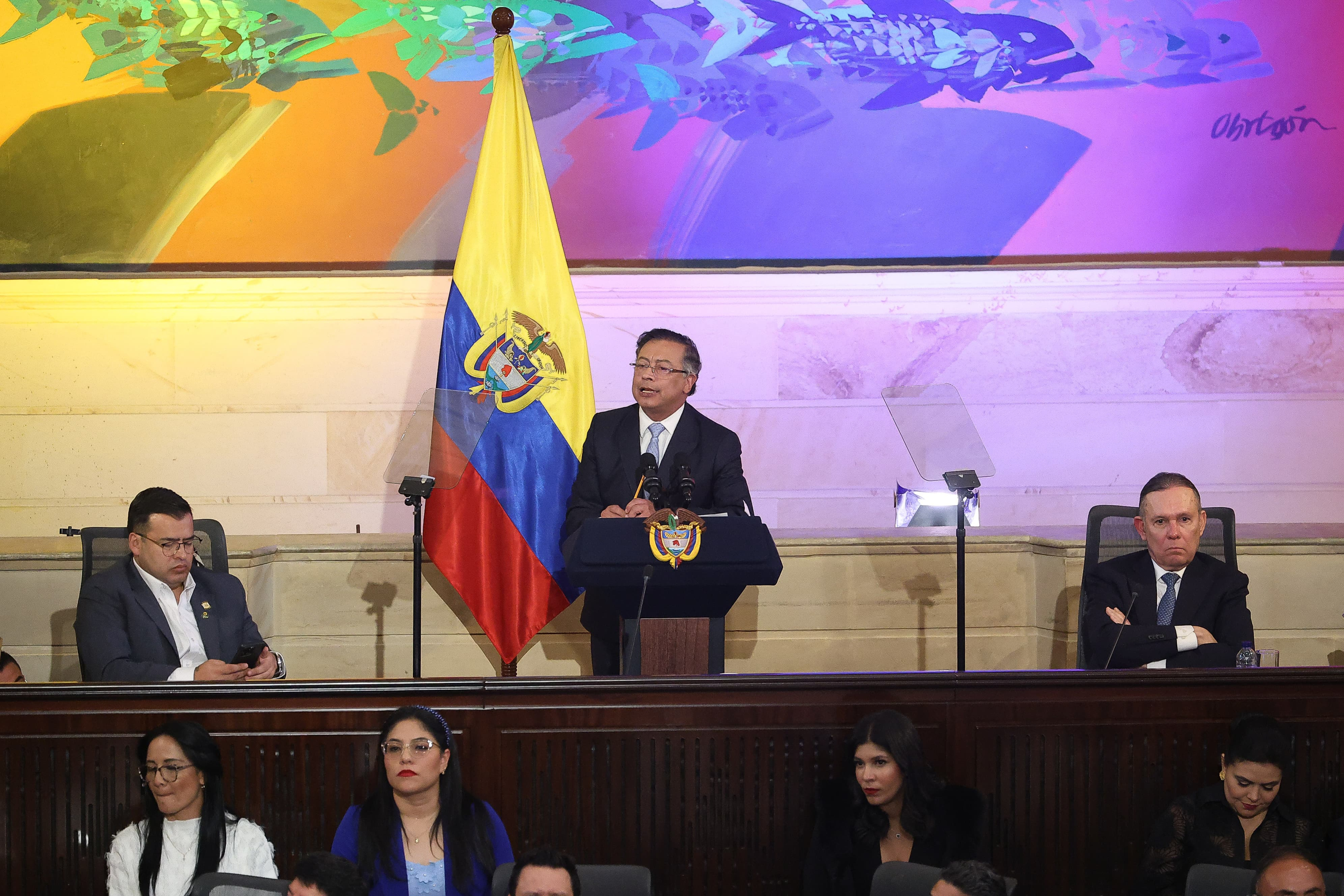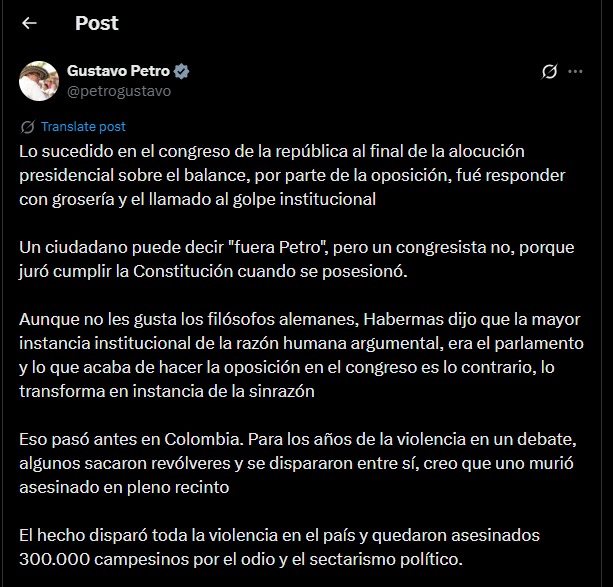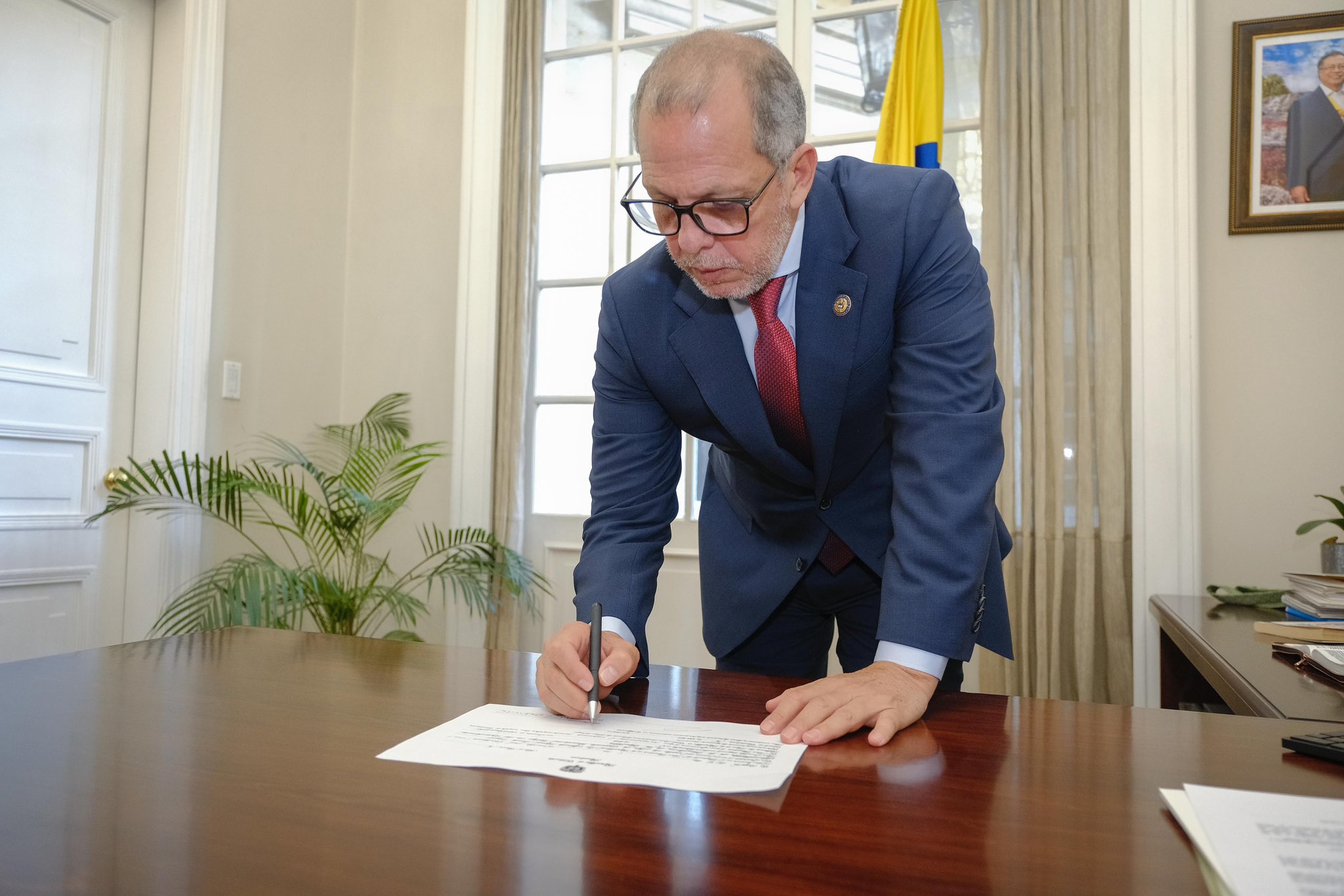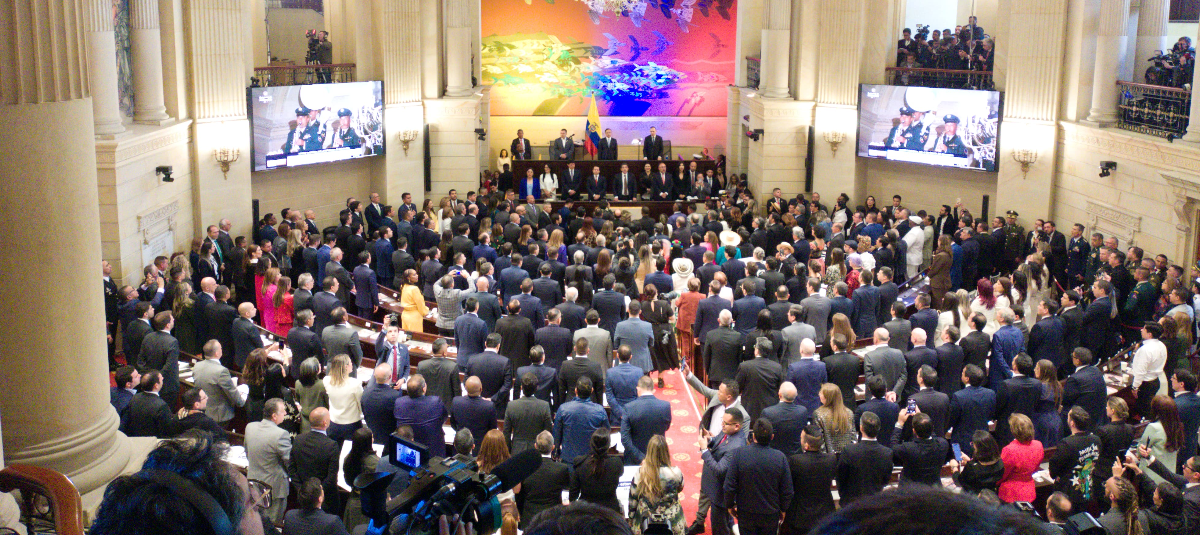President Gustavo Petro says congressmen can't say "Petro out," but a citizen can: Is what the president says true?

President Gustavo Petro once again addressed the harsh criticism he received from some members of Congress upon leaving Congress on July 20.
The president asserted that what happened in the House plenary session during the inauguration of the legislature was a "rude" response to the assessment he presented of his administration.
"What happened in Congress at the end of the presidential address on the balance sheet, on the part of the opposition, was a rude response and a call for an institutional coup. A citizen can say 'Petro out,' but a congressman cannot, because he swore to uphold the Constitution when he took office," the president wrote in a tweet.

President Gustavo Petro at the inauguration of the legislature on July 20. Photo: Néstor Gómez - EL TIEMPO
Following this statement, doubts arose as to whether it's true that parliamentarians cannot say "Petro out." EL TIEMPO consulted with experts, who agreed that congressmen do have that right.
“When a citizen assumes the position of congressman, they do not lose their fundamental rights. Undoubtedly, they submit to a regime specifically designed for their status as a public servant in Congress. Their fundamental right to freedom of expression entails some limitations, but also certain guarantees. For example, they cannot incite the use of violence and must have a greater tolerance for criticism and public scrutiny. However, in all cases, they can express their ideas, opinions, and political preferences; among other things, they can declare 'Petro out' without fear of being legally sanctioned for their expressions. Ultimately, it will be the citizens who will decide whether their words are appropriate or not, and they will express this at the polls,” said analyst Jairo Libreros.

President Gustavo Petro's tweet, in which he strongly criticized the media. Photo: X Gustavo Petro
Similarly, analyst Carlos Arias affirmed that congressmen are citizens and have the right to free expression.
“Even an opposition congressman, or one from the government itself, could and would have the obligation to do so, considering we live in a representative democracy. What they propose and the rhetoric used by congressmen, so to speak, reflects what their constituents want to say. In that regard, Gustavo Petro once again makes errors in his interpretation of the law,” Arias said.
During that same session, parliamentarians close to the president repeatedly shouted slogans in favor of presidential reelection, a practice expressly prohibited by the National Constitution. The controversial chief of staff, Alfredo Saade, adopted the same stance, and is being investigated by the Attorney General's Office for this incident. In his lengthy tweet, Petro made no reference to these two incidents.

Chief of Staff Alfredo Saade. Photo: Private archive
"Of course he can. Anyone who can't shout 'reelection' is an executive branch official who isn't a member of Congress, and what's more, he's requesting something that the Constitution itself prohibits. The inviolability of the word of congressmen is a constitutional guarantee that protects members of Congress for the opinions and votes cast in the exercise of their functions," stated the former president of the National Electoral Council, César Lorduy.
The controversial message about the media signal In that same publication, the president harshly attacked the media, which, in his opinion, fails to adequately report on his government. President Petro addressed the validity of the contracts that allow radio and television stations to use the electromagnetic spectrum.
"The contract is for them to commercially exploit a national asset. They are concessionaires. The contract is violated if the media violates the Constitution, the right to information, and the truth, and it is being violated here every day. Anyone would say the contracts should be terminated," Petro asserted in a tweet that is being reviewed by media associations.

Congress to be inaugurated on July 20, 2025. Photo: Néstor Gómez. EL TIEMPO
According to the president, criticism of his administration's performance is "toxic": "How much harm has been done to my humanity, to my family, and to the people , by misinforming them and filling them with hatred."
The head of state's stance is unprecedented, at least in the country's recent history, whose leaders have historically been committed to defending press freedom.
Petro's message was rejected by former minister Alejandro Gaviria, who stated: " Pastor Saade is not a loose cannon. When he says we must control the media, he is following President Petro's instructions."
In the same vein, Democratic Center representative Andrés Forero rejected the president's remarks: " In this long and tedious rant, @petrogustavo is supporting the anti-democratic proposal of his disgraceful 'chief of staff' to control the media."
Maria Alejandra Gonzalez Duarte
eltiempo





